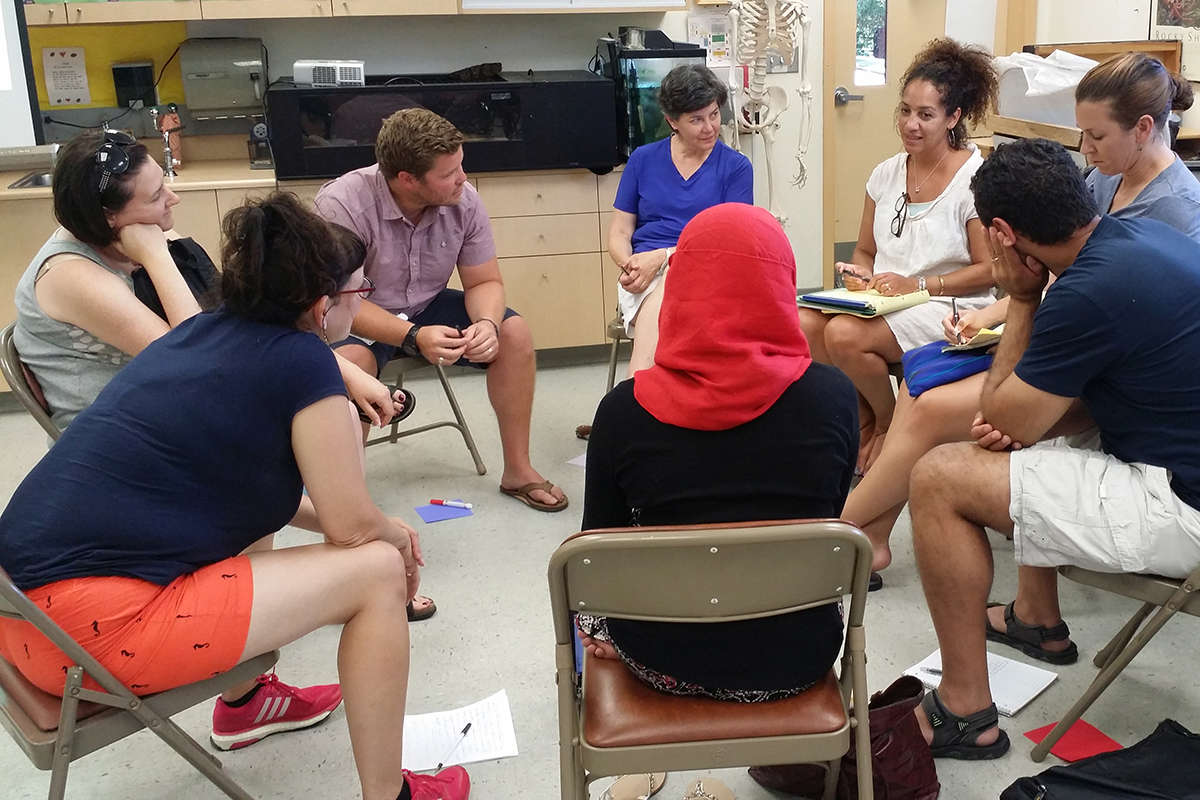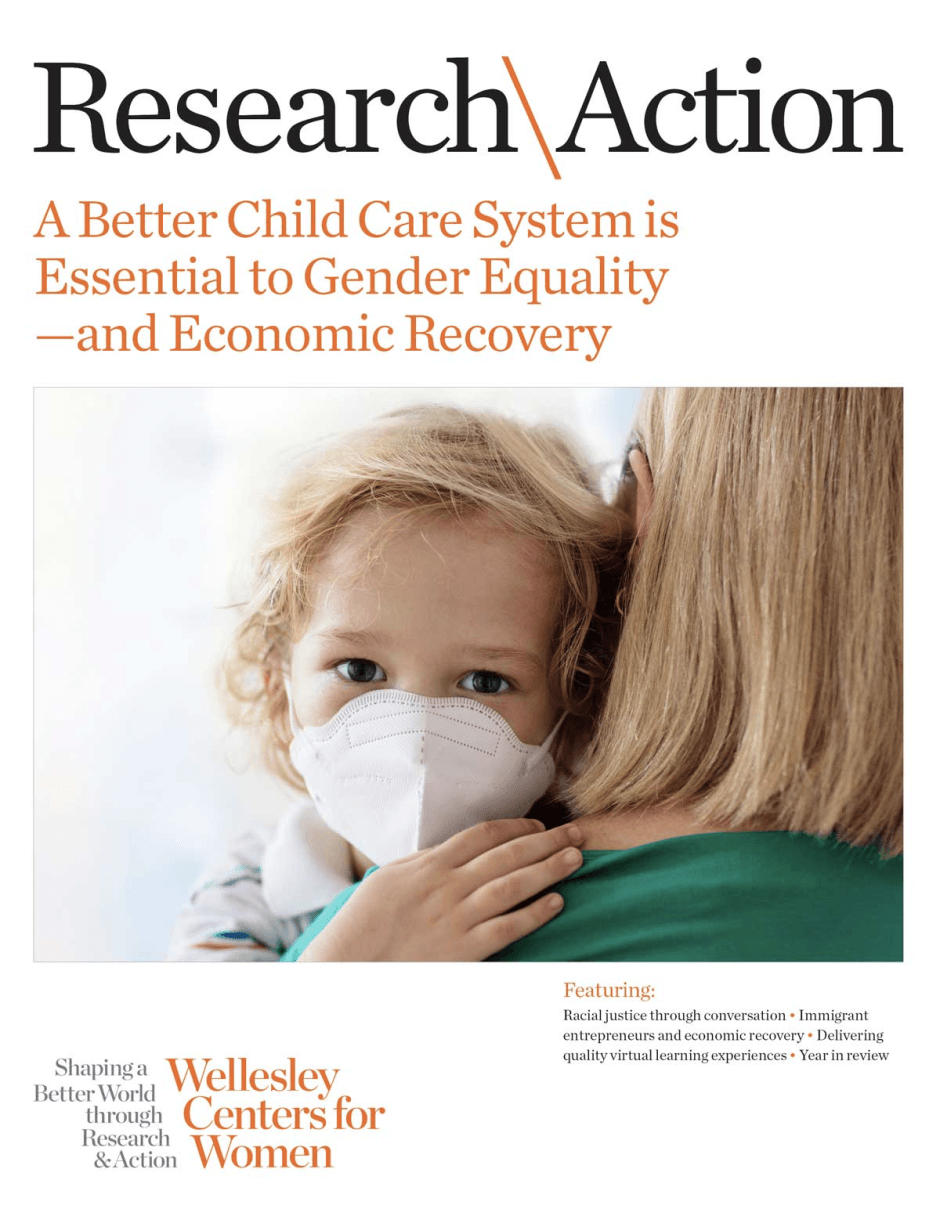Q&A with Gail Cruise-Roberson and Emmy Howe, M.Ed.
 Since 1987, SEED (Seeking Educational Equity and Diversity) has partnered with schools, organizations, and communities to develop leaders who guide their peers in conversational communities to drive personal, organizational, and societal change toward social justice. After attending New Leaders Week — held online for the first time this year — SEED leaders create local, year-long SEED seminars where they and colleagues use their own experiences to widen and deepen curricula and make communities more inclusive.
Since 1987, SEED (Seeking Educational Equity and Diversity) has partnered with schools, organizations, and communities to develop leaders who guide their peers in conversational communities to drive personal, organizational, and societal change toward social justice. After attending New Leaders Week — held online for the first time this year — SEED leaders create local, year-long SEED seminars where they and colleagues use their own experiences to widen and deepen curricula and make communities more inclusive.
Co-directors Emmy Howe, M.Ed., and Gail Cruise-Roberson (Jondou Chase Chen, Ph.D., is the third co-director, based at the University of Washington) recently sat down to talk about what makes SEED work and what lessons we can learn from it on how to have hard conversations within our communities.
What happens during New Leaders Week at SEED?
EH: Participants are introduced to SEED’s methodology, which involves personal reflection and serial testimony, listening deeply to others’ voices, and learning experientially and collectively, in the context of each person’s intersecting identities. Through this methodology, we equip participants to connect our lives to one another and to society at large by acknowledging systems of power, oppression, and privilege.
GCR: What we know works in SEED — speaking and listening without interruption, using texts and videos that give a systemic framework for how things impact people based on their identities — carried over to the virtual New Leaders Week we held this year. The difference was understanding people’s capacity to take in content and interact with such intensity online. In real life, we spend 12 hours together each day, whether in small or large groups or recreational time, which wasn’t going to be possible virtually. We created many of the same components, but we adapted them so they could be effective in a virtual space.
How does SEED drive change in people and institutions?
GCR: Participating in SEED has a transformative effect on people. Those who are educators look at how they’ve been teaching and the impact (or lack thereof) they’ve had, and begin to use what they’ve talked about, read about, and thought about in SEED to make choices in what they teach. Their relationships with their colleagues change. Many say, “I’ve taught with this person for 15 years, and I’ve learned more about them in an hour of SEED than I ever knew before.” Institutional change takes longer. But those who hold positions of power begin to look at issues of access, class, and race in a different way. Admissions officers and human resources staff look differently at candidates who they thought weren’t a good fit. Leaders start to examine the complexion of their institution, and what needs to change if they want to have a different impact on students of color as well as white students. Once you see things through SEED that you didn’t notice before, it’s hard not to see them.
EH: White people often leave SEED saying, “How could I not have known this?” People who’ve graduated from college in the last 10 years, in particular, wonder, “Why wasn’t I taught any of this?” By “this” they mean both the historical context of social injustice, and the experiences of the people they meet at SEED who are different from them. Because they’re sharing stories that are both head and heart, people begin to feel more attachment and more comfort with topics that they’re experiencing through these colleagues who they’ve gotten to know much better. We work with participants who come to SEED with a wealth of professional and personal knowledge and are able to build on skills they already have to become more impactful social justice activists within their workplaces. New SEED leaders and their SEED seminar participants take their identities and the stories of their lived experience to move their workplaces toward justice.
What lessons can we learn from SEED about having hard conversations about race and injustice?
GCR: The first and most important thing is that relationships matter, and the relationship is more important than the argument. You need to spend time getting to know your own place in the world and the place of the other person, so you can understand why they may think the way they do. And you must be committed to staying with the process of listening without interruption, which can feel uncomfortable at first. Also, we don’t isolate racism in SEED as though it were the one and only aspect of inequity we’re dealing with. We understand there are interlocking systems, and race is foundational. But people have multiple identities that affect how they experience racism, and those all come into our conversations. How we are in the world in all of our aspects has everything to do with how we experience it and why we find it so difficult to understand how some people’s experiences can be so different. That’s why relationships matter. If you’re truly in relationship with someone, you’ll start seeing and understanding their perspective. In order for any movement toward social justice to occur, I have to be as willing to be changed by your story as you are to be changed by mine.
EH: There are two things that people leave New Leaders Week knowing: It’s important to go in to listen, to understand, not to respond. And though people sometimes like to say “let’s assume positive intention,” at SEED we emphasize that intention is one thing, but impact is the important piece. It’s something that you can never say to yourself too many times. It doesn’t matter what my intention is, if my impact doesn’t match it. People will say, “But I’ve done this work all my life.” All that matters are the results.
GCR: This climate we’re in and this conversation we’re trying to have is a very challenging one, and there’s a reason it hasn’t gone farther than it has in the last 50 years. There are specific approaches that are helpful, and SEED is one.
Gail Cruise-Roberson and Emmy Howe, M.Ed., are co-directors of the National SEED Project, an action program at WCW. They both have backgrounds as educators and social justice advocates, with years of experience facilitating peer-led professional development programs on diversity and inclusion.
SEED Summer Reading List
The first step to becoming a SEED leader is to attend New Leaders Week, where participants are introduced to SEED’s methodology of speaking and listening without interruption, combined with texts and videos. During this summer’s virtual New Leaders Week, SEED participants chose a selection of texts to read from the following list:
Books:
The Heartbeat of Wounded Knee: Native America from 1890 to the Present
by David Treuer
Rethinking Sexism, Gender, and Sexuality
edited by Annika Butler-Wall, Kim Cosier, Rachel Harper, Jeff Sapp, Jody Sokolower, and Melissa Bollow Tempel
Know My Name: A Memoir
by Chanel Miller
White Rage: The Unspoken Truth of Our Racial Divide
by Carol Anderson
A Map Is Only One Story: Twenty Writers on Immigration, Family, and the Meaning of Home
edited by Nicole Chung and Mensah Demary
Sister Outsider: Essays and Speeches
by Audre Lorde
Teaching to Transgress: Education as the Practice of Freedom
by bell hooks
The Poet X
by Elizabeth Acevedo
Is Gender Fluid?: A Primer for the 21st Century
by Sally Hines
Braiding Sweetgrass: Indigenous Wisdom, Scientific Knowledge and the Teachings of Plants
by Robin Kimmerer
There There
by Tommy Orange
The Good Immigrant: 26 Writers Reflect on America
edited by Nikesh Shukla and Chimene Suleyman
Teaching for Black Lives
edited by Dyan Watson, Jesse Hagopian, Wayne Au
Children’s Books:
A Different Pond
by Bao Phi; illustrated by Thi Bui
Dreamers
by Yuyi Morales
Julián is a Mermaid
by Jessica Love
Milo’s Museum
by Zetta Elliott; illustrated by Purple Wong
Drawn Together
by Minh Lê; illustrated by Dan Santat
When We Were Alone
by David Robertson; illustrated by Julie Flett
Mommy's Khimar
by Jamilah Thompkins-Bigelow; illustrated by Ebony Glenn
The Day You Begin
by Jacqueline Woodson; illustrated by Rafael López


